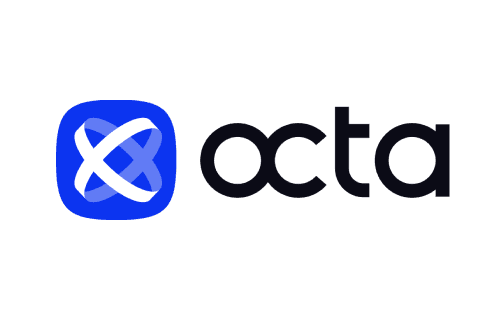In recent years, forex trading has gained significant popularity in India. However, the landscape for forex trading in the country is heavily regulated, and navigating the regulatory framework can be challenging for both new and experienced traders.
Despite these challenges, there are several reputable forex brokers that cater to Indian residents, providing a secure and efficient trading environment. This article will explore the best forex brokers for 2024, how to get started in forex trading in India, and the legal aspects surrounding forex trading in the country.
Regulatory Overview: SEBI and Forex Trading in India
The Securities and Exchange Board of India (SEBI) is the primary regulatory body overseeing the securities market in India. Established in 1988, SEBI became a statutory body in 1992 under the SEBI Act, 1992. SEBI’s primary role is to protect the interests of investors and to promote the development of the securities market by regulating its activities. However, SEBI’s regulations impose strict limitations on forex trading for retail traders in India.
According to SEBI regulations, Indian residents cannot engage in spot forex trading or speculate on forex prices using leveraged accounts. The Reserve Bank of India (RBI) enforces these restrictions, and Indian traders are only allowed to trade in exchange-traded currency derivatives (futures and options) on regulated exchanges such as the National Stock Exchange (NSE) and the Bombay Stock Exchange (BSE).
While SEBI-regulated brokers offer limited forex trading services, many Indian traders turn to international brokers that accept clients from India. These foreign brokers often provide access to a broader range of forex products and trading platforms, though trading with foreign brokers comes with its own set of risks and regulatory considerations.
Read: Best Forex Brokers in Malaysia 2024
Top Forex Brokers for Indian Traders in 2024
To identify the best forex brokers for Indian traders, we conducted an extensive analysis of various brokers that accept clients from India. Our analysis included more than 100 variables, including the brokers’ Trust Scores, which are proprietary scores based on factors such as regulatory status, financial stability, and overall reputation.
Here are the top forex brokers for Indian traders in 2024:
- Interactive Brokers
Interactive Brokers is renowned for its comprehensive offering and is best suited for professional traders. The broker is regulated by SEBI and offers exchange-traded currency derivatives in India. However, due to regulatory restrictions, Interactive Brokers does not offer traditional forex trading (i.e., non-deliverable spot forex) to Indian residents. - IG
IG is one of the most trusted brokers globally and offers an excellent overall trading experience. The broker is highly regarded for its user-friendly platform and extensive range of forex and CFD products. IG accepts clients from India, making it an excellent choice for Indian traders seeking a reliable and well-regulated broker. - FOREX.com
FOREX.com is known for its strong all-around offering, including competitive spreads, a robust trading platform, and a wide range of forex pairs. The broker is a popular choice among traders worldwide and accepts Indian residents as clients. - AvaTrade
AvaTrade is an excellent choice for beginners and those interested in copy trading. The broker offers a variety of educational resources and a user-friendly platform, making it easy for new traders to get started. AvaTrade also accepts clients from India and offers a range of forex and CFD products. - XM Group
XM Group is a good option for traders interested in algorithmic trading. The broker offers the MetaTrader 4 and MetaTrader 5 platforms, which are widely used for automated trading strategies. XM Group accepts Indian residents as clients and provides competitive trading conditions. - Admirals
Admirals (formerly Admiral Markets) is an excellent choice for traders who prefer the MetaTrader platform. The broker offers competitive pricing and a range of forex and CFD products. Admirals accepts clients from India and is well-regulated, making it a safe choice for Indian traders. - FP Markets
FP Markets is known for its excellent pricing and support for the MetaTrader platform. The broker offers tight spreads and a wide range of forex pairs, making it a popular choice among traders. FP Markets accepts clients from India and provides a reliable trading environment.
Comparing Forex Brokers in India
When choosing a forex broker, Indian traders should consider several factors, including the broker’s regulatory status, the range of products offered, trading platforms, fees, and the quality of customer support. Below is a summary comparison of the top forex brokers mentioned above:
| Broker | Regulatory Status | Key Features | Accepts Indian Clients |
|---|---|---|---|
| Interactive Brokers | SEBI-regulated | Great for professionals, offers exchange-traded forex | Yes |
| IG | FCA, ASIC, NFA, etc. | Best overall broker, most trusted | Yes |
| FOREX.com | CFTC, NFA, FCA, etc. | Excellent all-round offering | Yes |
| AvaTrade | ASIC, FSCA, etc. | Great for beginners, copy trading | Yes |
| XM Group | ASIC, CySEC, etc. | Good for algo trading, supports MetaTrader | Yes |
| Admirals | FCA, ASIC, CySEC, etc. | Great for MetaTrader | Yes |
| FP Markets | ASIC, CySEC, etc. | Excellent pricing, MetaTrader support | Yes |
Getting Started with Forex Trading in India
For those new to forex trading in India, getting started requires careful planning and consideration of several key factors. Below are some essential steps to take when beginning your forex trading journey:
- Choose a Regulated Broker
The first step is to select a broker that is highly regulated and trustworthy. If you prefer to trade exchange-traded currency derivatives, you can choose a SEBI-regulated broker such as Interactive Brokers. If you wish to trade off-exchange forex (over-the-counter or OTC), you may consider foreign brokers that accept Indian residents, ensuring they are well-regulated in their respective jurisdictions. - Verify SEBI Authorization
If you opt for a SEBI-regulated broker, it is essential to verify their authorization by checking the registration number on the SEBI website. This step ensures that the broker is currently authorized to operate in India and complies with local regulations. - Open a Live Trading Account
Once you have chosen a broker, the next step is to open a live trading account. Start by selecting an account type that aligns with your trading goals and deposit an amount you can afford to risk. Many brokers offer demo accounts, which are valuable tools for practicing trading strategies without risking real money. - Develop a Trading Plan
A well-structured trading plan is crucial for success in forex trading. Identify your trading goals, risk tolerance, and preferred trading strategies. Continuously educate yourself on forex trading and stay informed about market developments to make informed trading decisions. - Practice with a Demo Account
Before risking real money, it is advisable to practice trading on a demo account. This allows you to familiarize yourself with the trading platform, test different strategies, and gain confidence in your trading abilities. - Monitor Regulatory Updates
Forex trading regulations in India can change, so it is important to stay updated on any new developments from SEBI and RBI. Keeping informed about regulatory changes can help you adapt your trading strategy and ensure compliance with local laws.
Is Forex Trading Legal in India?
Yes, forex trading is legal in India, but with strict limitations. Indian residents are allowed to trade exchange-traded currency derivatives on regulated exchanges like the NSE and BSE. However, spot forex trading and leveraged forex transactions from margin accounts are not permitted by the RBI.
The RBI has issued warnings against dealing with foreign brokers that are not regulated by SEBI, highlighting the potential risks involved. As of September 2022, the RBI included several international brokers on its alert list, emphasizing the importance of choosing a well-regulated broker for forex trading.
Risks and Safety Considerations in Forex Trading
Forex trading, like any form of trading or investment, carries inherent risks. Market risk is the primary concern, as unfavorable market movements can result in significant losses. Additionally, counterparty risk is a critical factor, where the other party in the trade (e.g., the broker) may fail to fulfill its obligations.
To mitigate these risks, it is essential to choose a broker with a strong reputation, robust financial stability, and proper regulatory oversight. The broker’s capitalization, integrity, and reliability are crucial factors in ensuring the safety of your funds.
OctaFX in India: Regulatory Status and Legality
OctaFX, now known simply as Octa, is a well-known international forex broker that has gained considerable attention in India, particularly after sponsoring the Delhi Capitals, an Indian Premier League (IPL) cricket team, in 2021. Despite its popularity, the legal status of OctaFX in India is complex and requires careful consideration by traders.
Is OctaFX Legal in India?
The legality of trading with OctaFX in India is a topic of concern due to the broker’s lack of regulation by the Securities and Exchange Board of India (SEBI). OctaFX is not registered or authorized by SEBI, which means that it does not have the regulatory oversight that Indian authorities require for brokers operating within the country. Instead, OctaFX is regulated by the Cyprus Securities and Exchange Commission (CySEC), a reputable regulatory body in Europe. While CySEC regulation is a positive factor, it does not fulfill the legal requirements set by Indian regulators.
The Reserve Bank of India (RBI) has taken a firm stance against forex trading through brokers that are not regulated by SEBI. The RBI’s guidelines emphasize that Indian residents should only trade forex through SEBI-regulated brokers and avoid engaging with foreign brokers that do not adhere to local regulations. This caution is particularly relevant to OctaFX, which has been placed on the RBI’s alert list, highlighting the potential risks of trading with brokers that are not authorized by Indian regulators.
Risks of Trading with OctaFX in India
Given that OctaFX is not regulated by SEBI, Indian traders who choose to trade with this broker face several risks:
- Regulatory Risk: Trading with a broker that is not authorized by SEBI exposes traders to regulatory risks, including potential legal consequences. Since OctaFX is not subject to SEBI’s regulations, Indian traders may not have the same level of protection as they would with a SEBI-regulated broker.
- Fund Safety: One of the key concerns when trading with a foreign broker is the safety of funds. While OctaFX is regulated by CySEC, there is no guarantee that Indian traders’ funds will be protected in the event of a dispute or financial instability of the broker. The lack of SEBI regulation means that Indian traders may have limited recourse if issues arise.
- Difficulty in Deposits and Withdrawals: The Central Bank of India has imposed restrictions on the movement of funds to and from foreign forex brokers that are not regulated by SEBI. This can make it challenging for Indian traders to deposit and withdraw funds from OctaFX, potentially leading to delays or additional fees.
- Legal Implications: Engaging in forex trading with a non-SEBI-regulated broker like OctaFX could potentially violate the Foreign Exchange Management Act (FEMA), 1999. This act governs foreign exchange transactions in India and restricts certain types of forex trading activities. Violating FEMA regulations can result in legal penalties, including fines or other sanctions.
Should Indian Traders Use OctaFX?
Given the regulatory environment in India, traders should exercise caution when considering OctaFX as their forex broker. While OctaFX offers a range of attractive features, including competitive spreads, various account types, and a user-friendly platform, these benefits must be weighed against the potential risks and legal challenges.
For Indian residents, the safest option is to choose a SEBI-regulated broker that offers exchange-traded currency derivatives. This approach ensures compliance with local regulations and provides a higher level of protection for traders’ funds. If Indian traders are determined to trade with an international broker, they should ensure that the broker is highly regulated in a reputable jurisdiction and fully understand the risks involved.
OctaFX’s Trust Score and Global Reputation
Despite the challenges in India, OctaFX has built a solid reputation globally, with a Trust Score of 70 out of 99. This score is based on several factors, including the broker’s regulatory status, financial stability, and overall reliability. OctaFX’s regulation by CySEC adds a level of credibility, as CySEC is a Tier-1 jurisdiction known for its stringent regulatory standards.
Globally, OctaFX is considered an average-risk broker. It offers a wide range of trading instruments, including forex, commodities, indices, and cryptocurrencies, which can appeal to a diverse group of traders. Additionally, OctaFX’s commitment to providing educational resources and excellent customer support has earned it a loyal client base in many countries.
Conclusion
Forex trading in India is a highly regulated activity with limited options for retail traders. However, by choosing the right broker, understanding the regulatory framework, and following best practices, Indian traders can engage in forex trading safely and efficiently. The brokers listed in this article are among the best options for Indian residents in 2024, offering a range of forex products, competitive trading conditions, and reliable customer support.
As with any financial endeavor, it is crucial to approach forex trading with caution, develop a well-thought-out trading plan, and stay informed about regulatory changes. By doing so, you can navigate the complexities of forex trading in India and work towards achieving your trading goals.








